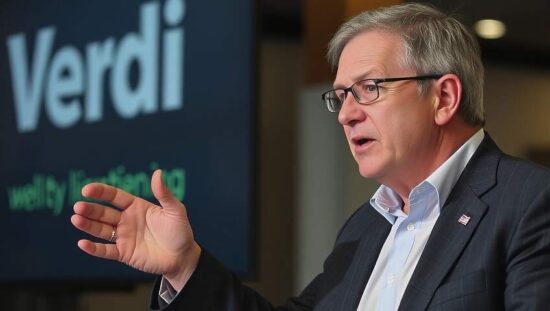A German labor union chief has expressed alarm over the government’s plans to flexibilize working hours, warning that the move could lead to the end of the 8-hour workday and the introduction of a 13-hour workday. Frank Werneke, the head of the German Services Union, made the comments following the first meeting of the coalition committee, where the government outlined its plans to relax working hour regulations.
Werneke, a vocal critic of the government’s proposals, argued that the changes would disproportionately affect small businesses without employee representatives, leaving workers vulnerable to exploitation by employers. He also criticized the government’s plan to extend working hours, saying it would be a step backward, as it would be physically demanding and increase the risk of accidents.
The labor union chief also accused the government of shifting the burden of its policies onto local authorities, which are already struggling to make ends meet. He pointed out that the government’s planned investment package would not address the financial struggles of municipalities, which are facing a deficit of 24 billion euros and have taken on kassenkredite of 36 billion euros.
Furthermore, Werneke criticized the government’s lack of balance in its policies, saying it was not providing sufficient relief for workers and instead, was focusing on tax cuts for businesses. He called for a reform of the income tax system and an increase in the basic exemption to help alleviate the financial burden on workers and municipalities.
The union chief also lamented the government’s neglect of the healthcare and social care sectors, saying that the issues of healthcare and social security were being ignored. He advocated for a full insurance system in the social care sector, with a cap on contributions, to prevent more people from being forced onto social welfare.
While Werneke was critical of the government’s plans, he did welcome some of the measures, including the extension of the rent brake, the planned Bundestariftreuegesetz and the initiation of the 500 billion euro investment package.





